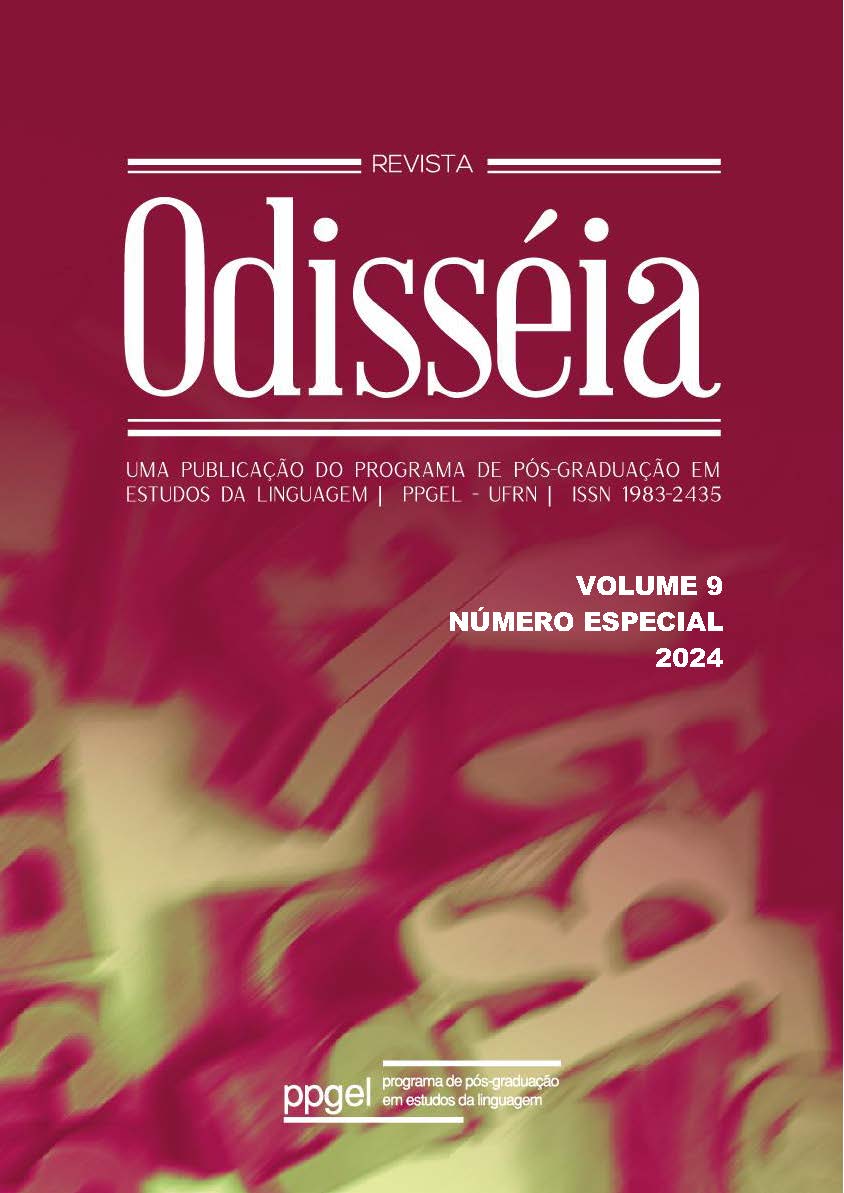Argumentation and misogynist discourse on social media
DOI:
https://doi.org/10.21680/1983-2435.2024v9nEspecialID34878Keywords:
Argumentation. Hate speech. Misogynist discourse. Ethos. Political discourse.Abstract
This article explores misogynistic discourse as a growing form of hate speech on social networks, especially in the political sphere. From a theoretical-analytical point of view, the research is situated in the field of argumentation studies and Discourse Analysis, in addition to drawing on work on digital discourses. In this text, the “small corpus” (Moirand, 2020), which will support the reflection, is made up of posts on the social network Twitter [currently X], in which two prominent politicians denounce the violence they have suffered. The selection of the posts and some of the responses to them is important in the article because of their representativeness, as they are “emerging forms” (Moirand, 2020) of the issue addressed. The Twitter/X social network was chosen for its ability to bring together a large and diverse number of followers and for providing faster contact between them through short and concise language. All this makes this network a favorable environment for disagreements of all kinds, for polemics, verbal violence and hate speech.
Downloads
References
ALBERT, Luce et NICOLAS, Loïc (dir.). Polémique et rhétorique de l’Antiquité à nos jours. Bruxelles: Éd. de Boeck – Duculot. Coll. “Champs linguistiques”, 2010.
AMOSSY, Ruth. Apologie de la polémique. Paris: PUF, 2014.
ARISTÓTELES. Retórica. 4a edição. Tradução e notas de Manuel Alexandre Júnior. Lisboa: Casa da Moeda. 2010.
BUENO, Samira et al.. Visível e Invisível: A Vitimização de Mulheres no Brasil. 3ª edição. 2021.
BUTLER, Judith. Problemas de gênero: feminismo e subversão da identidade. Rio de Janeiro: Editora Civilização. Brasileira, 2003. (Original publicado em 1990).
BUTLER, Judith. Discurso de ódio. Uma política do performativo. São Paulo: Unesp, 2021. (Original publicado em 1997).
CARVALHO, E. G. Cyberbullying em jogos online -Categorização dos conteúdos, levantamento nacional dos jogadores e perfil das vítimas. Dissertação (Pós-Graduação em Psicologia) - Universidade Tuiuti do Paraná. Curitiba, 2014.
CERQUEIRA, Daniel et al.. Atlas da Violência 2021. São Paulo: FBSP, 2021.
CHARAUDEAU, Patrick. Le discours politique. Les masques du pouvoir . Paris : Vuilbert, 2005.
KERBRAT-ORECCHIONI, Catherine. « La polémique et ses définitions », pp. 3-40, in: Kerbrat-Orecchioni C., Gelas N., éds, Le discours polémique, Lyon, Presses universitaires de Lyon. 1980.
Autor. Xxxxxx 2019
Autor . xxxxxx 2023
MARTINS, Samira Bueno, Juliana et al. Visível e Invisível: A Vitimização de Mulheres no Brasil - 3ª edição – 2021.
MAINGUENEAU, Dominique. Sémantique de la Polémique. Lausanne, Suíça: L’Age d’Homme, 1983.
MEYER, Michel. Principia rhetorica. Une théorie générale de l’argumentation. Paris: Fayard, 2008.
MOIRAND, Sophie. « L’apport de petits corpus à la compréhension des faits d’actualité», Corpus [En ligne], 18 | 2018, mis en ligne le 09 juillet 2018, consulté le 08 septembre 2020. URL : http:// journals.openedition.org/corpus/3519
MOUFFE, Chantal. L’illusion du consensus. Paris: Albin Michel, 2016.
PAVEAU, Marie-Anne. Análise do discurso digital: dicionário de formas e práticas. São Paulo: Pontes, 2021.
PLANTIN, Christian. Les bonnes raisons des émotions. Principes et méthode pour l'étude du discours émotionné. Bern: Peter Lang, 2011.
ROSIER, Laurent. Le petit traité de l’insulte. Loverval : éditions labor, 2006.
SODRÉ, Muniz. O fascismo da cor. Rio de Janeiro: Vozes, 2023.
TELES, Maria Amélia A.; MELO, Mônica de. O que é violência contra a mulher. Brasiliense. 2003. 117 p.
Van Djick, José. La cultura de la conectividad. Una historia critica de las redes sociales. Buenos Aires: Siglo Veintiuno editores, 2016.
VINCENT, Diane & BARBEAU, Geneviève Bernard. « Insult, disqualification, persuasion et tropes communicationnels : à qui l’insulte profite-t-il » ? In : Revue argumentation e analyse du discours. Vol. 8, 2012.
Downloads
Published
How to Cite
Issue
Section
License
Copyright (c) 2024 Odisseia

This work is licensed under a Creative Commons Attribution-NonCommercial-ShareAlike 4.0 International License.
Thisa work has been licensed under Creative Commons - Atribuição - NãoComercial - CompartilhaIgual 3.0 Não Adaptada.


















